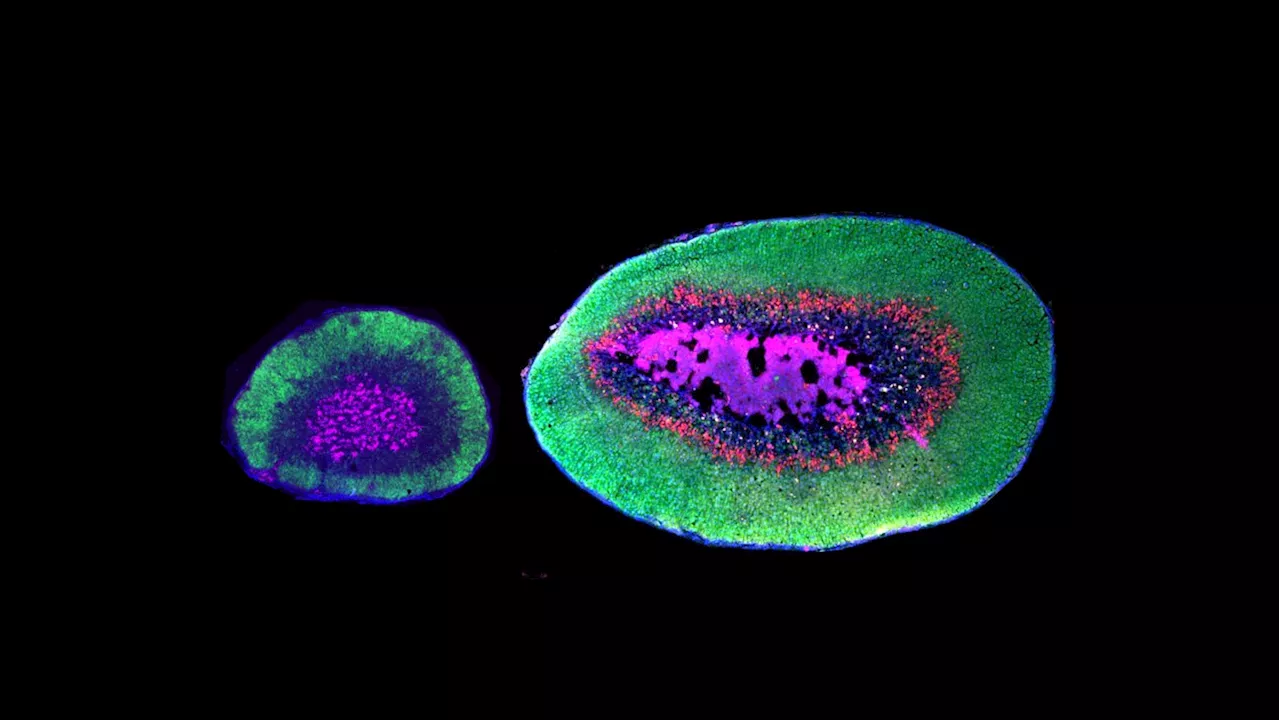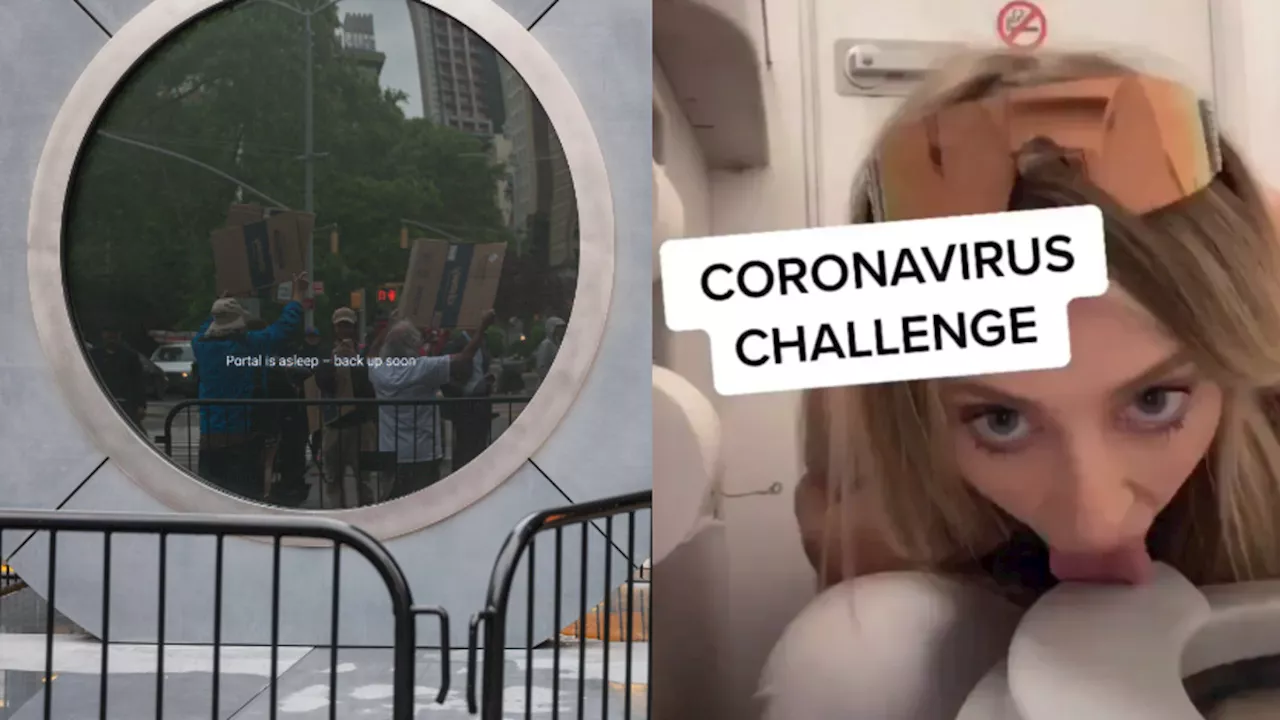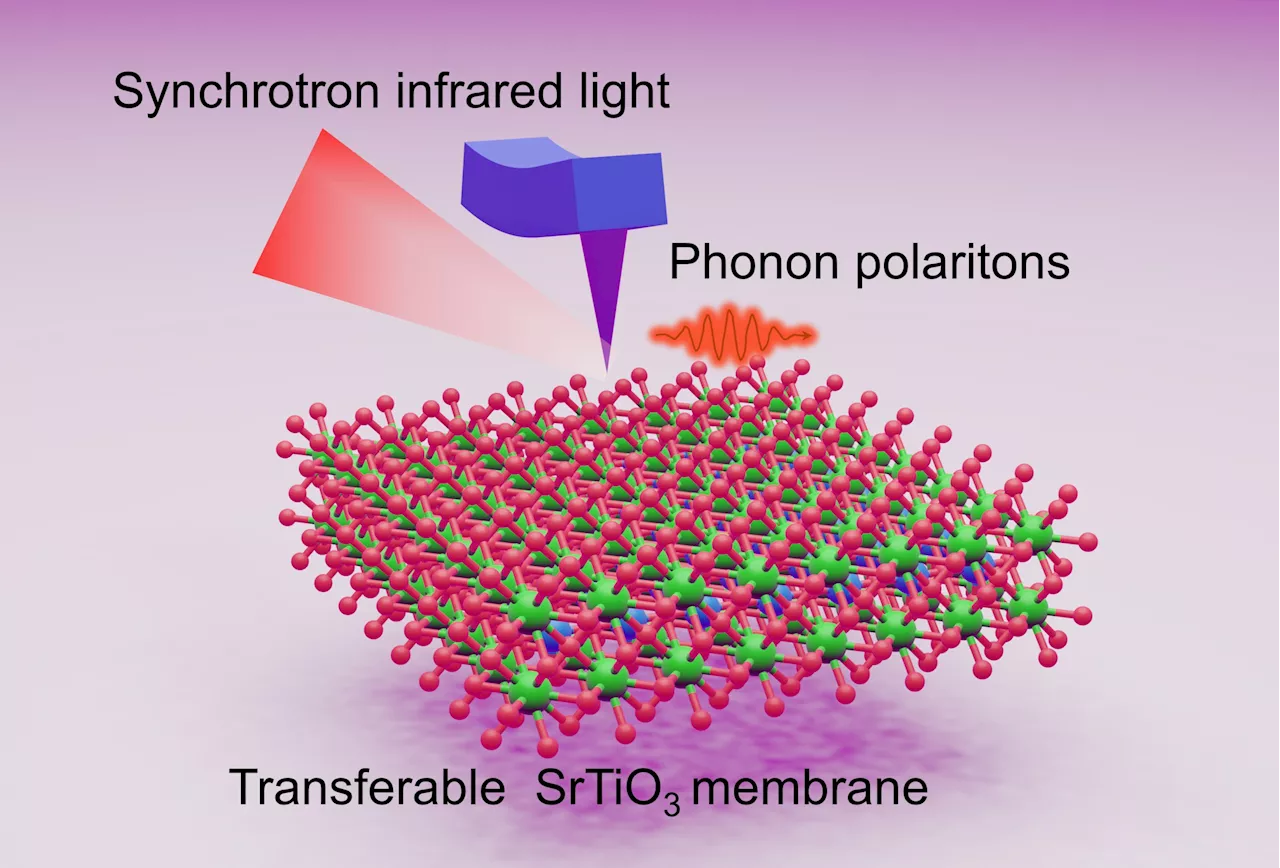Science, Space and Technology News 2024
Researchers have demonstrated that a specific class of oxide membranes can confine infrared light much more effectively than bulk crystals, which has promising implications for next-generation infrared imaging technologies. These thin-film membranes maintain the desired infrared frequency while compressing wavelengths, allowing for greater image resolution.
Researchers have successfully shown that a particular type of oxide membranes can effectively confine, or “squeeze,” infrared light. This breakthrough could enhance future infrared imaging technologies. These thin-film membranes outperform traditional bulk crystals in confining infrared light. For this work, the researchers worked with transition metal perovskite materials. Specifically, the researchers used pulsed laser deposition to grow a 100-nanometer-thick crystalline membrane of strontium titanate in a vacuum chamber. The crystalline structure of this thin film is high quality, meaning that it has very few defects. These thin films were then removed from the substrate they were grown on and placed on the silicon oxide surface of a silicon substrate.
“This work establishes a new class of optical materials for controlling light in infrared wavelengths, which has potential applications in photonics, sensors, and thermal management,” Liu says. “Imagine being able to design computer chips that could use these materials to shed heat by converting it into infrared light.”
United States Latest News, United States Headlines
Similar News:You can also read news stories similar to this one that we have collected from other news sources.
 Hayward: Man was killed Jan. 31 in shooting that was previously undisclosed to the publicShortly after the shooting, two women pulled up in a car and told police that one of them had killed the man in self-defense.
Hayward: Man was killed Jan. 31 in shooting that was previously undisclosed to the publicShortly after the shooting, two women pulled up in a car and told police that one of them had killed the man in self-defense.
Read more »
 Scientists discover some mice are monogamous due to previously unknown hormone-generating cellsWhat makes the oldfield mouse steadfastly monogamous throughout its life while its closest rodent relatives are promiscuous? The answer may be a previously unknown hormone-generating cell, according to a new study published online today in Nature from scientists at Columbia's Zuckerman Institute.
Scientists discover some mice are monogamous due to previously unknown hormone-generating cellsWhat makes the oldfield mouse steadfastly monogamous throughout its life while its closest rodent relatives are promiscuous? The answer may be a previously unknown hormone-generating cell, according to a new study published online today in Nature from scientists at Columbia's Zuckerman Institute.
Read more »
 The OnlyFans Model Who Ruined the Portal Previously Went Viral for Licking a ToiletThe adult influencer who contributed to the pause of New York's weird portal loves a good stunt.
The OnlyFans Model Who Ruined the Portal Previously Went Viral for Licking a ToiletThe adult influencer who contributed to the pause of New York's weird portal loves a good stunt.
Read more »
 Samsung opens second chance at enrolling previously-purchased devices in its protection planJohanna 'Jojo the Techie' is a skilled mobile technology expert with over 15 years of hands-on experience, specializing in the Google ecosystem and Pixel devices. Known for her user-friendly approach, she leverages her vast tech support background to provide accessible and insightful coverage on latest technology trends.
Samsung opens second chance at enrolling previously-purchased devices in its protection planJohanna 'Jojo the Techie' is a skilled mobile technology expert with over 15 years of hands-on experience, specializing in the Google ecosystem and Pixel devices. Known for her user-friendly approach, she leverages her vast tech support background to provide accessible and insightful coverage on latest technology trends.
Read more »
 Study finds paleolithic people settled in Cyprus thousands of years earlier than previously thoughtThe patterns of dispersal of early humans across continents and islands are hotly debated, but according to a new study in Proceedings of the National Academy of Sciences, Pleistocene hunter-gatherers settled in Cyprus thousands of years earlier than previously thought.
Study finds paleolithic people settled in Cyprus thousands of years earlier than previously thoughtThe patterns of dispersal of early humans across continents and islands are hotly debated, but according to a new study in Proceedings of the National Academy of Sciences, Pleistocene hunter-gatherers settled in Cyprus thousands of years earlier than previously thought.
Read more »
 Overlooked coastal marine ecosystems can capture more carbon dioxide than previously thought, finds studyThe ability of coastal ecosystems to capture and store carbon dioxide has been underestimated. The question is not just about seagrass meadows and mangrove forests, which have already attracted attention, but a wide range of different ecosystems whose carbon storing function has been overlooked.
Overlooked coastal marine ecosystems can capture more carbon dioxide than previously thought, finds studyThe ability of coastal ecosystems to capture and store carbon dioxide has been underestimated. The question is not just about seagrass meadows and mangrove forests, which have already attracted attention, but a wide range of different ecosystems whose carbon storing function has been overlooked.
Read more »
